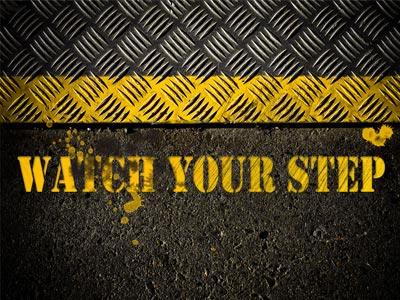-
How To Survive A Storm Series
Contributed by Simon Bartlett on Nov 27, 2023 (message contributor)
Summary: Three important strategies for surviving a storm. They're all not-so-common common-sense.
The book of Acts is 28 chapters long. In Chapter 28, Paul finally gets to Rome. But chapter 27 is the chapter where the last major drama of the book of Acts happens. It’s the story of Paul in a storm. Luke, who wrote the book of Acts, gave a lot of space to this story. He must think it’s significant. I do too! I believe it has some important things to teach us about what the Christian life is like and how to survive storms.
GOD AND STORMS
to begin with, I’d like to make some comments about God and storms.
God sometimes CAUSES storms. In the story of Jonah we read, ‘But the Lord hurled a great wind upon the sea, and there was a mighty tempest on the sea’ [Jonah 1:4]. God caused that storm.
Conversely, God sometimes CALMS storms. Jesus calmed a storm on the Sea of Galilee. He rebuked the winds and the sea, and there was a great calm [Matthew 8:26]. There are examples in the Old Testament too [e.g. Psalm 107:28-29].
But sometimes, God doesn’t engage with the storm at all. That’s the case in our passage today. There’s nothing to suggest that God caused the storm Paul found himself in. And he certainly didn’t calm it. But God went with Paul INTO the storm.
This tells us something about the Christian life. Most of us wouldn’t like God to CAUSE a storm in our lives. But he could. Most of us WOULD like God to CALM storms in our lives! God can do that too. But it may be that God neither CAUSES not CALMS a storm. But he goes with us through the storm.
In the book of Daniel, Daniel’s friends Shadrach, Meshach and Abednego got into trouble with King Nebuchadnezzar. He ordered that they be thrown into a fiery furnace. God could have kept them from the furnace – but he allowed them to be thrown in. But then, to his amazement, King Nebuchadnezzar saw a fourth person in the furnace with him. And he cried out, ‘and the appearance of the fourth is like a son of the gods!’ [Daniel 3:25].
It’s the same point. God may not keep us from the storm, but he will go into the storm with us.
But perhaps you think, ‘Storms don’t come to righteous people. Storms come when we drift out of God’s purposes.’ But that isn’t the case in this story. Paul hadn’t been drifting spiritually. God had told him that he had to testify in Rome [Acts 23:11]. Here he was, on his way to Rome. He was in the centre of God’s will. And yet, a terrible storm came along! It shows that storms CAN come to righteous people, people who are in the centre of God’s will.
So, here are two simple but important truths about storms. First, storms happen. God can cause them. God can calm them. God may do neither. But he’ll go with us through them. Second, a storm in your life doesn’t mean that you’re outside God’s will. Paul wasn’t.
KINDS OF STORMS
I said, ‘a storm in your life.’ What kind of storm am I thinking about? There can be literal storms at sea. But there are many kinds of storms in life. There was an item on the news yesterday about a lady called Emma Webb. Her daughter, Brodie, committed suicide when she was 16. Brodie was a keen rider and Emma Webb is now walking from Chepstow to London, pulling a life-size resin horse after her to raise awareness of mental health. What a devastating experience that must have been. It was certainly a storm. But there are many other kinds of storms. A person can lose a close family member. A person can fall ill, or get into debt, or suffer from depression. A person can lose their job or fail an exam or have a car accident. A person’s marriage can fail. A person can have problems at work. A person’s children can get into trouble. They’re all storms.
Storms come. It’s part of life. We need to be prepared. Maybe Jesus will intervene and rebuke the winds and the waves and everything will become calm. But maybe God will see fit to let us go through the storm.
What are our strategies? What did Paul do? I’m going to make three points. Have you heard the phrase, ‘Not-so-common common-sense’? When I tell you these things you’ll probably say, ‘Come on Simon! These are obvious! We know these things!’ I expect you do know them. But the evidence is that many Christians don’t DO them.
AVOID
The first strategy is AVOID. AVOID the storm if you possibly can.
Look at verse 10. There’s obviously a discussion going on between the centurion, the ship’s captain, the owner of the ship, and Paul. Paul tells them: ‘Sirs, I perceive that the voyage will be with injury and much loss, not only of the cargo and the ship, but also of our lives.’

 Sermon Central
Sermon Central



